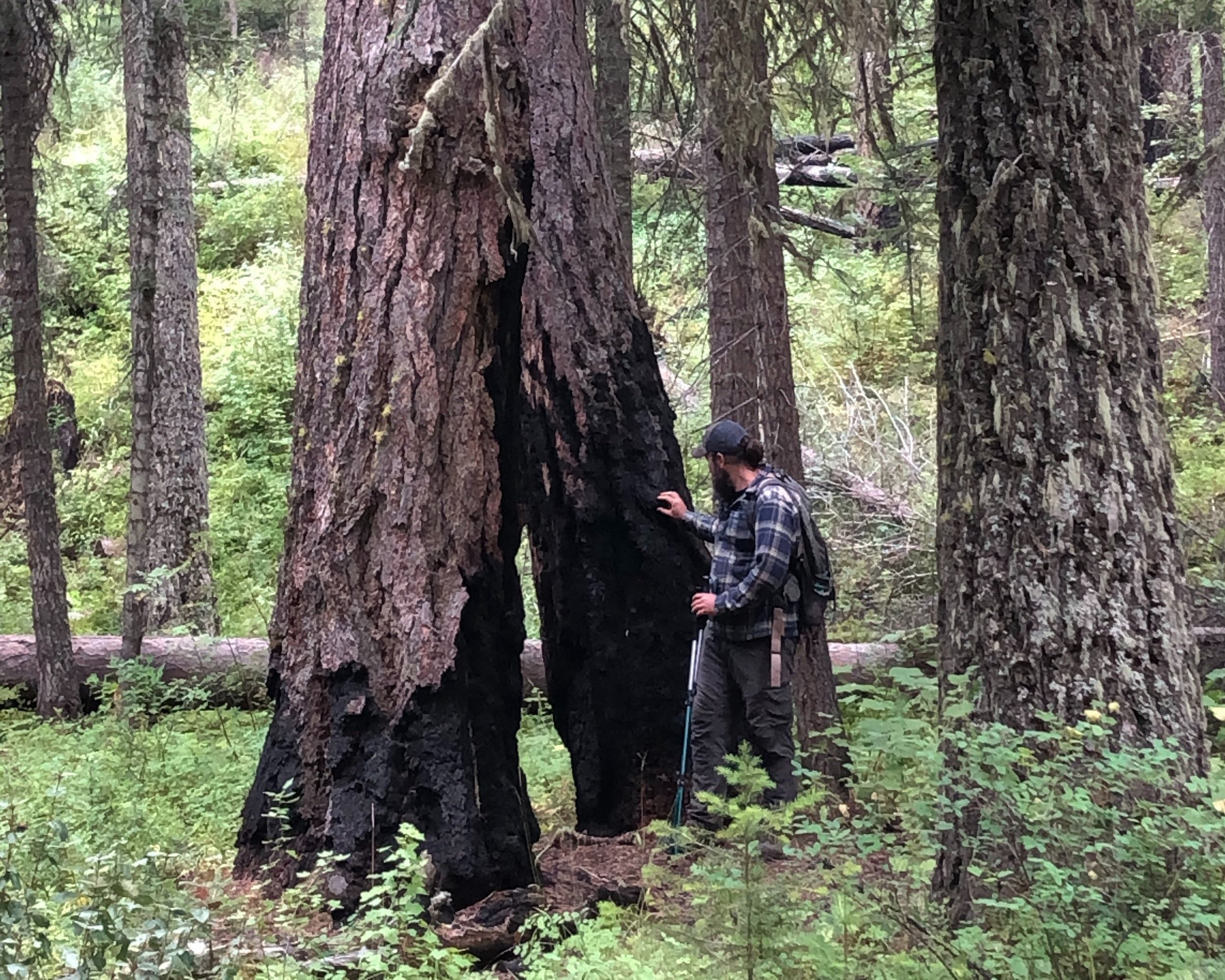People and Trees
You may be surprised to learn that half of our DNA is shared with trees. But modern life has made things complicated.
Given that forests all around us are being logged — on public lands, state lands and private properties — both because we need and increasingly use wood products as consumers, including making big money cutting trees, the reality is that trees are essential to our existence for other reasons: They are homes to a diversity of wildlife and birds, and are individuals in their own right. They offer human beings an opportunity for spiritual and emotional connection.
Whether it is the issue of the Climate Crisis where carbon sequestration of big trees is an important solution, or recent research that finds spending time in nature, especially among trees, to be a healthy choice for our mental as well as physical health.
Perhaps it’s time to forge a new relationship with trees, but how do we do that? In this two-part podcast, I decided to explore a variety of ways — past and present — that people relate to trees and forests, and from a variety of perspectives — from Indigenous cultures in Idaho, to artists and writers, to forest managers and wildlife defenders.
As a journalist and North Idaho resident since 1979, I have written and produced various news stories, as well as features and documentaries for public radio that documented the changes that occurred from the Timber Wars of the recent past to the Forest Collaboratives of today, especially around wildlife issues. But today there is a growing recognition that complex forest ecology and new forestry science as an interconnected community of trees, plants, fish, wildlife and humans, can guide us into the future and help us choose how we continue to log and use forest products.
For the past three decades my work for The Idaho Mythweaver has also included creating works featuring Indigenous voices like that of Jaime Pinkham of the Nez Perce, his tribe’s former forestry manager who today is serving in the Biden Administration as a top official for the U.S. Army Corps of Engineers. In our podcast, Pinkham speaks about how tribal traditional values take precedence whenever differing world views clash around forestry practices.
This is the first podcast around our new focus — Voices of the Wild Earth. We hope you’ll listen and consider what you hear from the nine distinct voices interviewed.
This program is supported in part by a major grant from the Idaho Humanities Council, a state-based program of the National Endowment for the Humanities, with additional funding from Idaho Forest Group of Coeur d’Alene and Laclede, Idaho. We are very grateful for their support.
12/28/21

